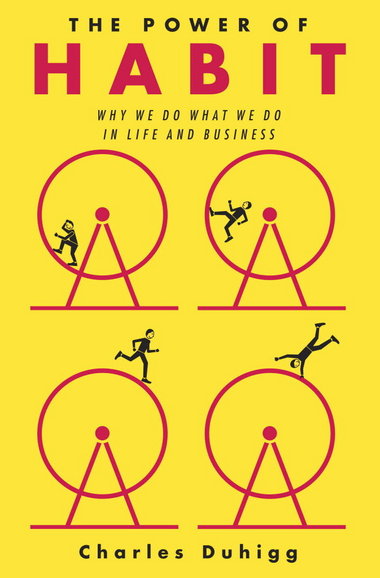The Power of Repetition
Click HERE for my NEW BOOK!
By Tom Peterson
Repetition can be powerful in three ways. First, as we repeat something, like a sports move or a piano piece, we move toward mastering it. Second, we can accomplish a giant task with frequent small actions toward the goal. Third, repetition creates habits.
Mastering through Repetition
Nothing like doing something over and over to get good at it. But there has to be a bit of stretch each time—even if, simply doing it today is the stretch. To master something, you’ll have to experiment, just as the Wright Brothers did, time and again, before getting that first flight.
If something is important to you, make a commitment to repeatedly spend time on it—every day, every week. Robert Greene in Mastery says,
When it comes to mastering a skill, time is the magic ingredient. Assuming your practice proceeds at a steady level, over days and weeks certain elements of the skill become hardwired. Slowly, the entire skill becomes internalized, part of your nervous system. The mind is no longer mired in the details, but can see the larger picture. It is a miraculous sensation and practice will lead you to that point, no matter the talent level you are born with.
Something You Really Want
In Flow, Mihaly Czikszentmihalyi says for that transformative experience one must be clear about the goals. “Before investing great amounts of energy in a goal, it pays to raise the fundamental questions: Is this something I really want to do? Is it something I enjoy doing? Am I likely to enjoy it in the foreseeable future? Is the price that I—and others—will have to pay worth it?”
He goes on to say,
If goals are well chosen, and if we have the courage to abide by them despite opposition, we shall be so focused on the actions and the events around us that we won’t have the time to be unhappy. And then we shall directly feel a sense of order in the warp and the woof of life that fits every thought and emotion into a harmonious whole.
Let’s say you want to master writing. The most important thing first step is find a way to write regularly. In The Artist’s Way, Julia Cameron has famously encouraged people to do “Morning Pages,” simply writing long-form three pages every day as a life-changing activity.
If you’re consistent in a habit, like writing, and truly stick with it over time (even if you miss here and there), it becomes more and more automatic. And as we take these frequent acts, we can recognize ways to correct the course along the way.
 In Outliers, Malcolm Gladwell argued that to master something, spend 10,000 hours on it. While that notion has been questioned recently, there’s still much truth to it. You may not want to be a master pastry chef, you’d simply like to learn to make a great croissant. So we’re not talking about 10,000 hours. Back to repetition: let’s say you commit to 20 stabs at making croissants. You follow recipes, watch videos, ask for help from people who know how. After number 20, you’ll probably be able to make a pretty damned good croissant. And you met your goal, congratulations!
In Outliers, Malcolm Gladwell argued that to master something, spend 10,000 hours on it. While that notion has been questioned recently, there’s still much truth to it. You may not want to be a master pastry chef, you’d simply like to learn to make a great croissant. So we’re not talking about 10,000 hours. Back to repetition: let’s say you commit to 20 stabs at making croissants. You follow recipes, watch videos, ask for help from people who know how. After number 20, you’ll probably be able to make a pretty damned good croissant. And you met your goal, congratulations!
Accomplishing through Repetition
How can we pull off that big project or life goal? Mark Twain said, “The secret of getting ahead is getting started. The secret of getting started is breaking your complex overwhelming tasks into small manageable tasks, and then starting on the first one.”
Twain is absolutely right. But what comes next is just as important: repeatedly take action on the project. In Manage your Day-to-Day, Gretchen Rubin on harnessing the power of frequency says, “We tend to overestimate what we can do in a short period, and underestimate what we can do over a long period, provided we work slowly and consistently.” She describes the power of frequency: it makes starting easier, keeps ideas fresh, keeps the pressure off, sparks creativity, nurtures frequency, fosters productivity. “One of my most helpful Secrets is, ‘What I do every day matters more than what I do once in a while.’”
100 Ways to Improve the NYC Subway
 In mid-2013 Randy Gregory announced on his Tumblr site: “For the next 100 Days, I will propose various improvements to the New York City Subway, which in 2012 had 1.6 billion riders, and should be seen as the best subway in the country, if not the world. I’ll be exploring various ideas, from UX, Environmental, Co-Branding, Audio/Visual, and more, including potential interviews with MTA employees.”
In mid-2013 Randy Gregory announced on his Tumblr site: “For the next 100 Days, I will propose various improvements to the New York City Subway, which in 2012 had 1.6 billion riders, and should be seen as the best subway in the country, if not the world. I’ll be exploring various ideas, from UX, Environmental, Co-Branding, Audio/Visual, and more, including potential interviews with MTA employees.”
He was working on his masters in branding at the School of Visual Arts in Manhattan. If nothing else, this project is certain to brand Randy Gregory as someone who has struggled with how to improve the subway. He now gets invited to present his findings and has been featured in publications and blogs.
Generating and illustrating 100 ideas was ambitious. But by consistently repeating the “small manageable tasks,” Gregory created a significant body of work. And he started community conversations about New York’s subway system. Some ideas would cost billions, while others are almost free. Some will certainly become reality. Here are three:
1. Skylights. Why aren’t there more skylights in the station? More light would mean warm spots in the winter, and would be something interesting to look at when waiting for a train. Also, this could help people who suffer from seasonal affective disorder. Just because we’re underground, doesn’t mean it needs to feel like a cave.
41. Exercise Call to Action. Experience isn’t just about making a system work better, it’s also about making people better. Using data, we can calculate & display how many calories are burned using the stairs and walkways instead of escalators, elevators, and automated paths, and use that data as a call to action to get New Yorkers out there and use the urban gym.
 26. Wifi on the trains. It helps in situations when people get stuck on the trains, so they can communicate with their jobs, friends, and family…for example, if you’re on the 1,2, or 3, and the lines get shut down because of a missing inmate. Or, keep track of your tasks/directions as you plan out your busy schedule. Or even watch cat videos on Youtube. Wifi would enable a whole new level of ease on the trains.
26. Wifi on the trains. It helps in situations when people get stuck on the trains, so they can communicate with their jobs, friends, and family…for example, if you’re on the 1,2, or 3, and the lines get shut down because of a missing inmate. Or, keep track of your tasks/directions as you plan out your busy schedule. Or even watch cat videos on Youtube. Wifi would enable a whole new level of ease on the trains.
This summer an artist friend, Hamid Ebrahimifar, set for himself a goal of creating 50 portraits one square foot on wood, with tempra in about a month. He gave himself 30 minutes to draw to the person, 30 minutes to paint while they posed, then finished it in his studio.
Wanting to explore Little Rock’s urban core, I walked with my dog, Wylie, through different section each day for 31 days. In one July we covered the whole of it and I learned a great deal—at street level, rich and poor, abandoned and revitalized—about the city I’d lived in for 20 years.
Randy Gregory’s ambitious project turned him into an expert.
Creating Habits Through Repetition
It’s through repetition that we rewire our brains. Doing something over and over, no matter how small, has a huge power. In The Power of Habit, Charles Duhigg, says we have a limited amount of will power each day. But after we turn something we want to do into a habit, that limited will power can be used somewhere else. As your daily or weekly act becomes a habit, you have unleashed a life-changing power. Duhigg talks about why it’s so hard to develop new exercise or eating habits:
Once we develop a routine of sitting on the couch, rather than running, or snacking whenever we pass a doughnut box, those patterns always remain inside our heads. By the same rule, though, if we learn to create new neurological routines that overpower those behaviors—if we take control of the habit loop—we can force those bad tendencies into the background…. And once someone creates a new pattern, studies have demonstrated, going for a jog or ignoring the doughnuts becomes as automatic as any other habit.
Norman Vincent Peale said “Repetition of the same thought or physical action develops into a habit which, repeated frequently enough, becomes an automatic reflex.”
The Will to Believe
Charles Duhigg, describes how philosopher William James suffered a long bout of self-doubt and depression, including thoughts of suicide.
Two months later, James made a decision. Before doing anything rash, he would conduct a yearlong experiment. He would spend twelve months believing that he had control over himself and his destiny, that he could become better, that he had the free will to change. There was no proof that it was true. But he would free himself to believe, all evidence to the contrary, that change was possible. “I think that yesterday was a crisis in my life,” he wrote in his diary. Regarding his ability to change, ‘I will assume for the present—until next year—that it is no illusion. My first act of free will shall be to believe in free will.
Over the next year, he practiced every day. In his diary, he wrote as if his control over himself and his choices was never in question… [He turned his life turned around.]
Later he would famously write that the will to believe is the most important ingredient in creating belief in change. And that one of the most important methods for creating that belief was habits. Habits, he noted, are what allow us to “do a thing with difficulty the first time, but soon do it more and more easily, and finally, with sufficient practice, do it semi-mechanically, or with hardly any consciousness at all.” Once we choose who we want to be, people grow “to the way in which they have been exercised, just as a sheet of paper or a coat, once creased or folded, tends to fall forever afterward into the same identical folds.”
If you believe you can change—if you make it a habit—the change becomes real. This is the real power of habit: the insight that your habits are what you choose them to be. Once that choice occurs—and becomes automatic—it’s not only real, it starts to seem inevitable, the thing, as James wrote, that bears “us irresistibly toward our destiny, whatever the latter may be.”
What would you like to master? Where would you like to improve your expertise? What would you like to accomplish? What new habit would you like to create? Set your own goal, make it ambitious, a stretch, but achievable.
You might also like “Done is Better than Perfect” — Click HERE!


